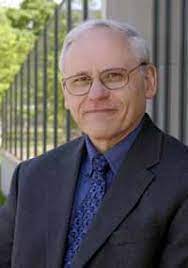Wuthnow, Robert

Bio: (1946-) American sociologist. Robert Wuthnow received his Ph.d. from the University of California, Berkeley, and spent his entire academic career at Princeton University, where he continues to teach. Wuthnow is best known for his contributions to the sociology of culture and the sociology of religion, and he has also studied civil society, social change, social movements, and American politics.
Within the sociology of culture, Wuthnow advocates a positivist and empiricist approach to culture. He presented his approach in detail in the books: Meaning and Moral Order: Explorations in Cultural Analysis (1987), Communities of Discourse: Ideology and Social Structure in the Reformation, the Enlightenment and European Socialism (1989), and Vocabularies of Public Life: Empirical Essays in Symbolic Structure (1992). Wuthnow criticizes the dominant approach in the sociology of culture, which he calls the "subjective" approach, which focuses on the beliefs, attitudes, and values of an individual. The goal of this approach is to gain insight into what symbols mean to a particular person. Wuthnow thinks that it is difficult to gain insight into a person's inner mental state, and therefore, what some symbols mean to that person. Instead, one should focus on patterns of symbolic codes that can be empirically observed, such as words and text, social movements, visual symbols, cultural products, and the like. For this type of cultural structuralism, each individual symbol must be produced by a specific person, in a specific environment.
In that sense, it is necessary to examine the origin and spread of cultural symbols. This process has three stages: 1) in the first stage the production of certain symbols takes place, 2) in the second stage there is a selection - some symbols are rejected and others spread because they affect the environment in which they originated and use the resources of that environment to spread further; 3) in the third stage, some symbols are institutionalized, by creating routine mechanisms for their constant reproduction. Some symbols become so institutionalized that society creates a large number of interconnected institutions that serve to spread and reproduce these symbols, and they begin to be perceived as "reality". One such system of symbols is science. According to Wuthnow, the goal of theoretical and empirical research on symbols and culture should be to identify, as systematically and exactly as possible, the environmental factors that contributed to each of the three stages of the spread of symbols.
Wuthnow has written a large number of books that explore religion, especially the religious situation in the United States. The most influential book in this area is The Restructuring of American Religion (1988). In this book, he states that there are two civil religions in the United States, and not one, as earlier sociologists believed. These two civil religions strictly follow the political divisions between the two main political parties in that country, so one civil religion is liberal (Democratic Party) and the other civil religion is conservative (Republican Party). This division of values touches on many socio-political issues and intersects with almost every single denomination and church in the United States. Belonging to a liberal or conservative faction of a particular church or civil religion affects a person's lifestyle and spiritual and moral life more than belonging to any particular church.
In After Heaven: Spirituality in America Since the 1950s (1998), Wuthnow points to changes in the practices of spiritual and religious "consumption" in America. In the 1950s, "dwelling spirituality" prevailed, when individuals sought to achieve spirituality within official religious organizations. The following decades saw the development of the "seeking spirituality" when individuals began to meet spiritual needs outside established religious organizations. In the 1980s, there was a development of " practice-oriented spirituality" where individuals, who are insecure and dissatisfied with belonging to a particular religious community, tend to associate everyday life with a sense of connection to the spirit world.
Wuthnow in Sharing the Journey: Support Groups and America’s New Quest for Community (1994) represents the results of his national survey of American adults, which was focused on participation in small support groups in the US. He states that ‘‘exactly forty percent of the adult population of the United States claims to be involved in a small group that meets regularly and provides caring and support for those who participate in it‘‘ (Wuthnow, 1994). Wuthnow estimated that there were about three million small civil society groups in the United States, and his estimate of the number of these small groups is as follows: Bible study and religious groups: 1.7 million; Self-help groups: 500,000; Special-interest groups (politics, sports, books, discussions): 750,000.
Fields of research
Animism Christianity Church Civil Religion Civil Society Community Conservative Ideology Culture Everyday Life Ideology Morality Movements, Social Parties, Political Politics Religion Rural Science Secularization Sign and Symbol SocialismTheoretical approaches
Cultural StructuralismMain works
The Consciousness Reformation (1976);
Experimentation in American Religion (1978);
Meaning and Moral Order: Explorations in Cultural Analysis (1987);
The Restructuring of American Religion (1988);
Communities of Discourse: Ideology and Social Structure in the Reformation, the Enlightenment and European Socialism (1989);
Vocabularies of Public Life: Empirical Essays in Symbolic Structure (1992);
Sharing the Journey: Support Groups and America’s New Quest for Community (1994);
After Heaven: Spirituality in America Since the 1950s (1998);
America and the Challenges of Religious Diversity (2005);
After the Baby Boomers: How Twenty- and Thirty-Somethings Are Shaping the Future of American Religion (2010);
Red State Religion: Faith and Politics in America's Heartland (2012);
Inventing American Religion: Polls, Surveys, and the Tenuous Quest for a Nation's Faith (2015);
American Misfits and the Making of Middle-Class Respectability (2017);
The Left Behind: Decline and Rage in Rural America (2018).

